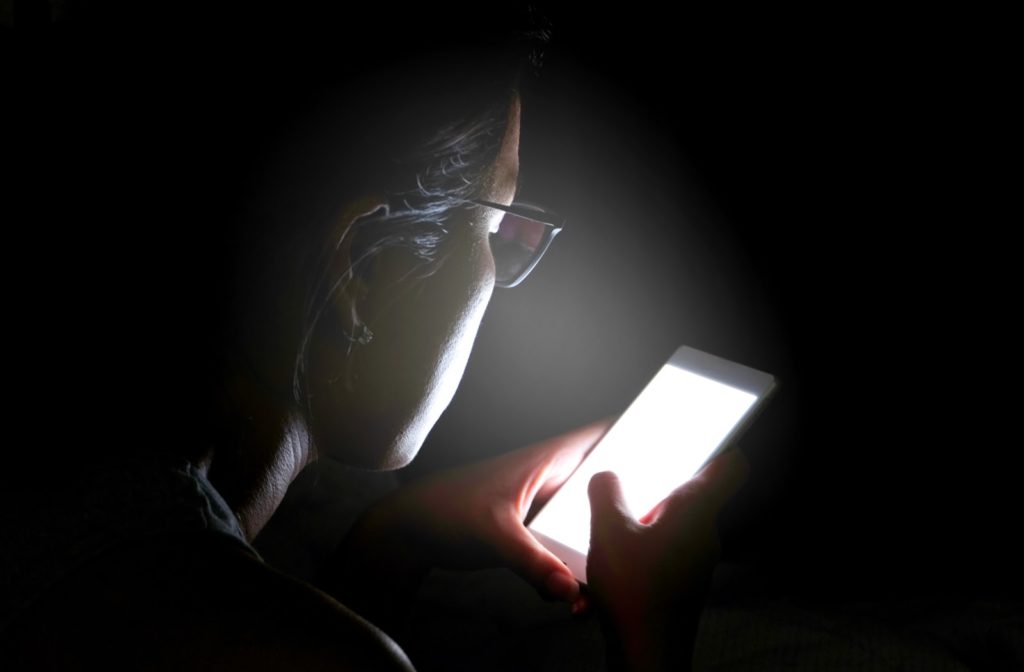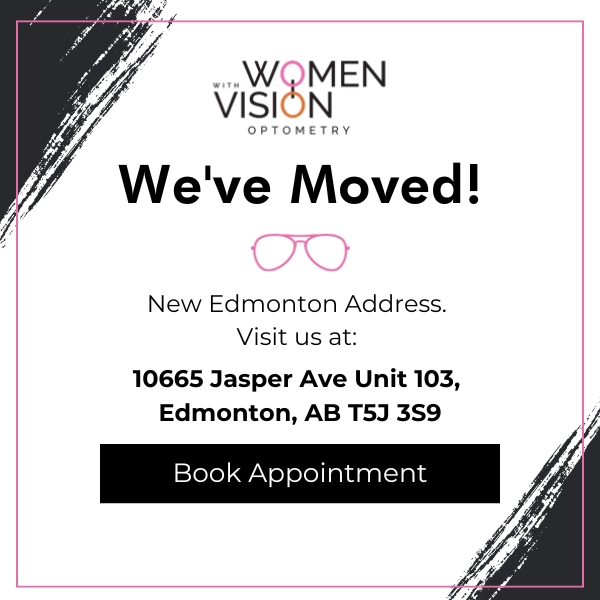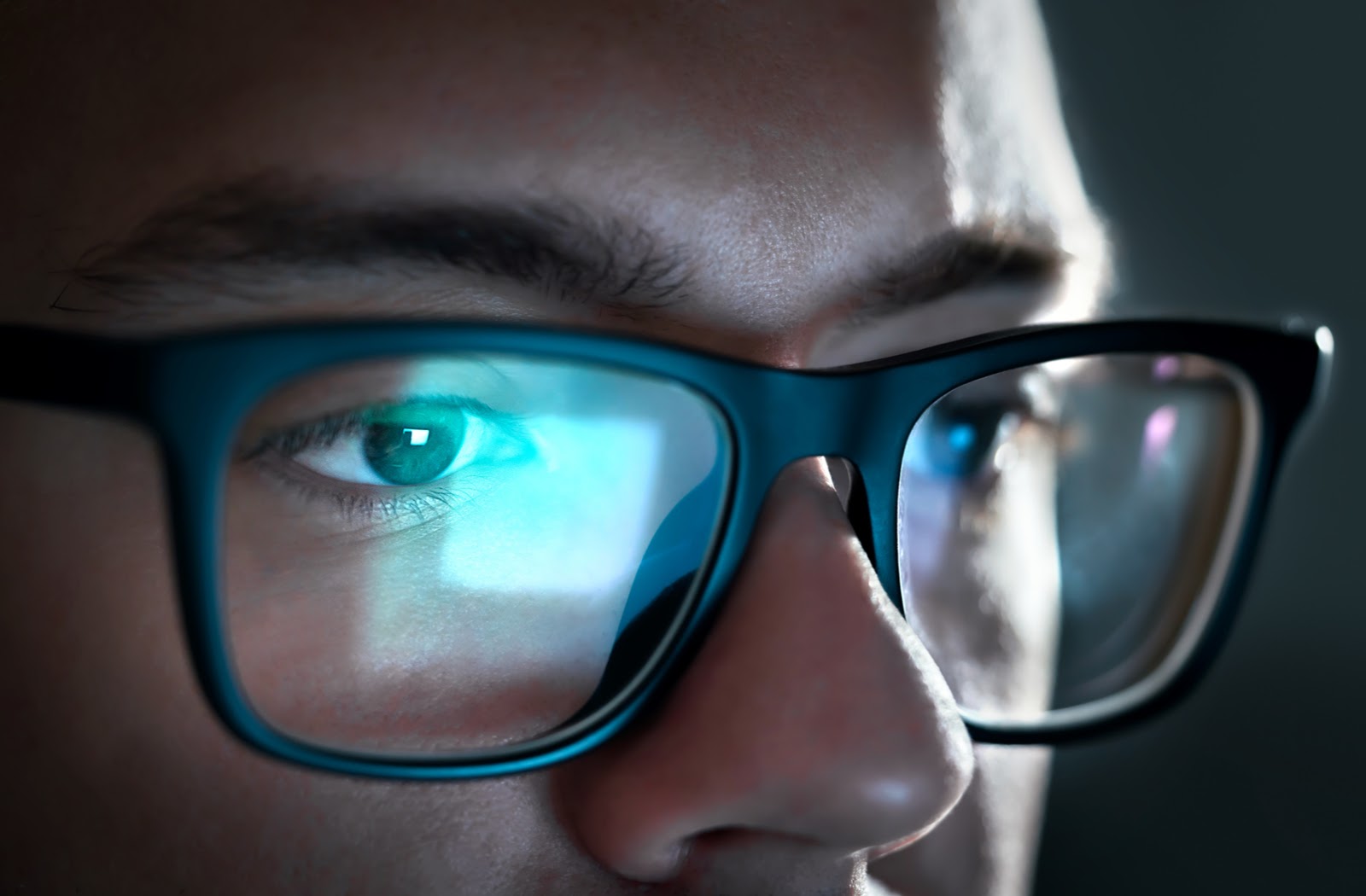Blue light is all around us, as it’s just another colour on the light spectrum that we see. The sun and indoor lights produce small amounts of blue light, but the digital screens that have become a big part of our lives provide the most.
Blue light doesn’t appear blue to the naked eye. On the visible light spectrum, blue light is the portion with the shortest wavelengths and highest energy. Blue light is sometimes referred to as high-energy visible (HEV) light.
Natural blue light from the sun helps regulate our internal clock, to keep us awake during the day and asleep at night. It also helps to boost mood, memory, and cognitive function. However, the blue light emitted from digital devices, particularly at night, can interrupt this natural rhythm.
Blue Light & Your Eyes
Extended exposure to blue light from the sun can harm your eyes. Conditions related to cumulative exposure to blue and ultraviolet (UV) rays include the early development of cataracts and macular degeneration. However, it’s important to note that the type of light exposure that can be damaging is primarily from natural sources.
Children are especially vulnerable to the effects of UV and blue light, as their eyes aren’t able to adequately filter out high energy blue light. It’s essential always to protect their eyes from the sun with UV-blocking sunglasses.
Digital Eye Strain
If your eyes feel tired and sore after a long day working on the computer, you might be experiencing the effects of digital eye strain. Although you may have heard these symptoms are worsened by the blue light emitted from digital devices, it’s not entirely true.
Digital eye strain is commonly caused by improper viewing distances, poor posture, and infrequent blinking. Adjusting your workspace and taking regular breaks to give your eyes a rest can help you continue to work on your devices comfortably.
What Are Blue Light Glasses?
Blue light glasses that claim to filter out blue light from computers, smartphones, and tablets, have become increasingly popular. Ads for blue light glasses state they prevent symptoms from overexposure to blue light, like digital eye strain, dry eyes, and degenerative eye conditions.
There hasn’t been any conclusive evidence to prove there is anything to protect your eyes from.
Although prolonged exposure to some kinds of light can be damaging to your eyes, there is currently no scientific evidence to suggest that blue light from digital devices causes long-term damage to your eyes.
Benefits of Blue Light Glasses

One thing that blue light can contribute to is disrupting your sleep schedule. If you find yourself struggling to fall asleep after using your digital devices, it could be because of the blue light.
One benefit of wearing blue light glasses is that they filter out blue light, allowing your body to produce normal amounts of melatonin, a hormone that helps regulate your sleep schedule.
Like “nighttime modes” available on some devices, the glasses act to reduce the amount of blue light absorbed by your eyes, which can keep you awake.
So, Do You Need Them?
In short, no. If you’re experiencing digital eye strain symptoms or are having trouble falling asleep at night, lifestyle changes and work habits can be significantly more effective than blue light filtering glasses.
Proper usage time, viewing distances, and regular breaks can make a world of difference when regularly using digital devices. Additionally, protecting your eyes from harmful UV rays with good quality sunglasses will minimize your risk of developing degenerative diseases like cataracts or age-related macular degeneration.
Limiting your nighttime usage of digital devices can help regulate your sleep schedule. Reading before bed rather than watching TV or scrolling through social media, can allow your body to adjust more easily to bedtime.
Regular eye exams will ensure your ocular health and vision are monitored appropriately if you do begin to notice changes. Your optometrist can make recommendations that will suit your lifestyle best. If you’re interested in trying blue light filtering glasses, please chat with your doctor for a professional opinion on what will keep you comfortable.




